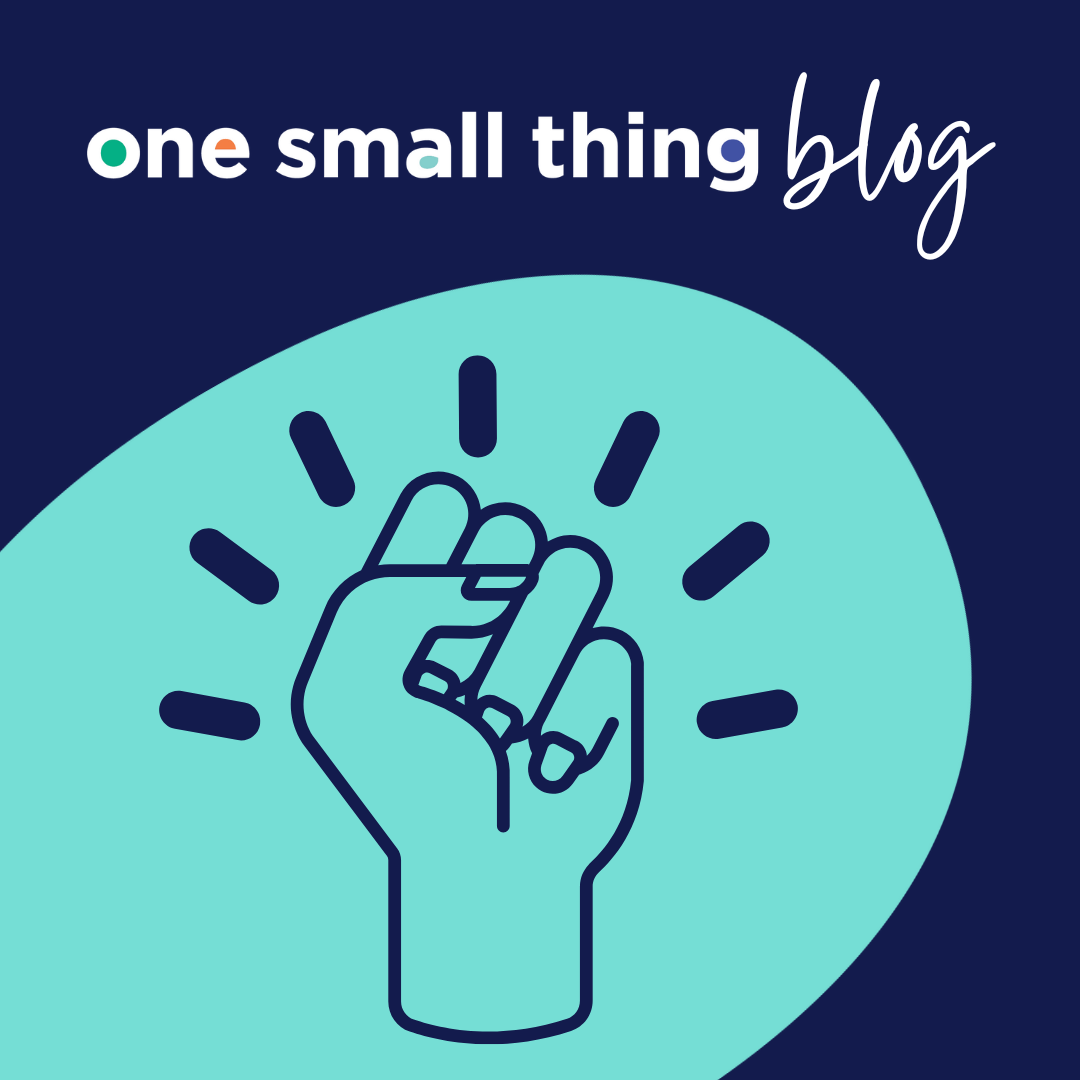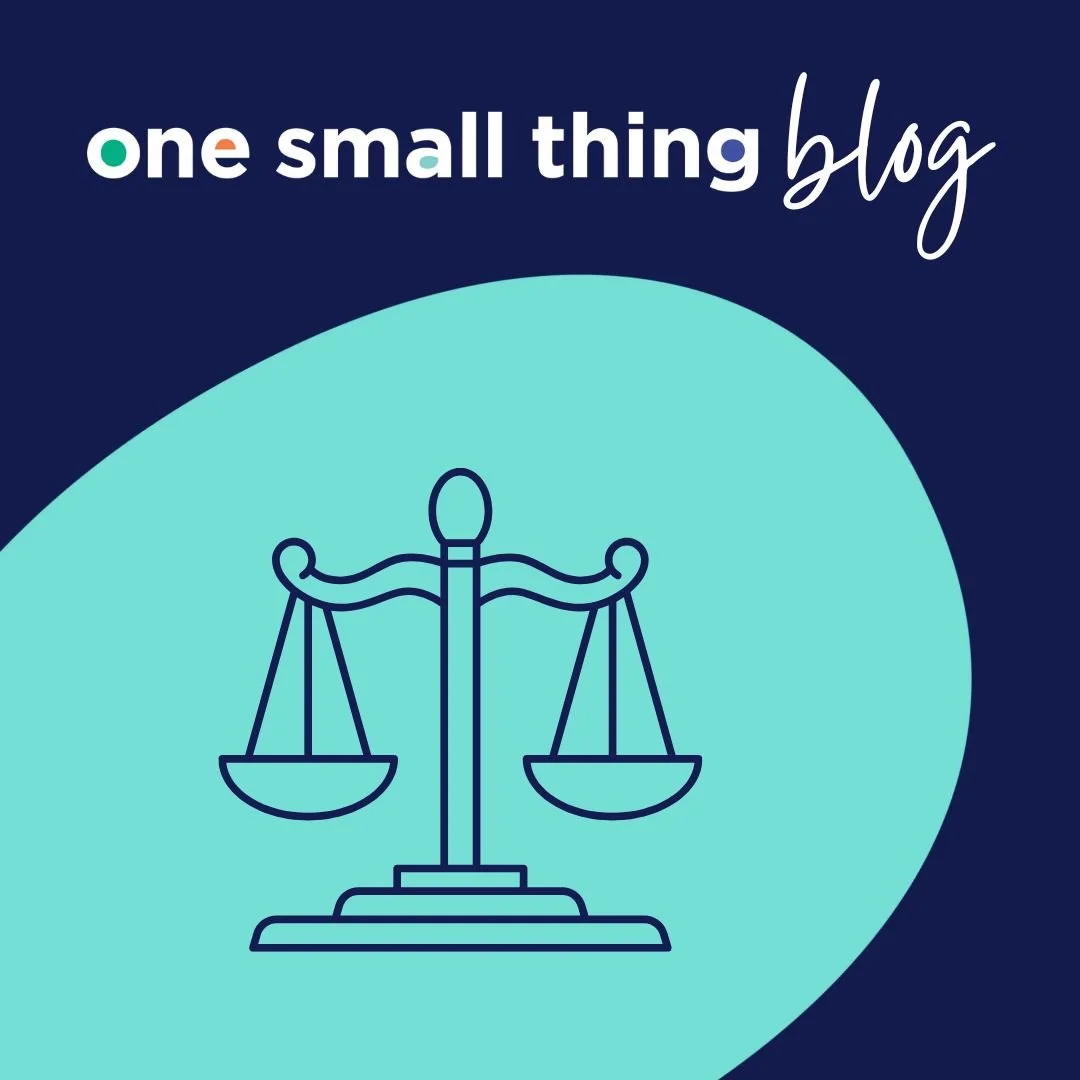Championing Voices of Lived Experience
Lilly Lewis, Women’s Involvement Advisor, One Small Thing
In the next in her series of blogs Lilly Lewis, One Small Thing’s Women’s Involvement Advisor explores the vital role those with lived experience have in creating change for those in the justice system. She reflects on her own experience, and why organisations and workplaces must have measures in place to support team members with lived experience.
I feel that in order for changes in the justice system to happen, voices of lived experience are essential. It is important to understand how and why a crime was committed. The only people who have a true answer for that are those who committed the crime. It is very hard to imagine what life in prison is like unless you have been to prison.
I feel it is very important to value lived experience as much as you would value a person's work or academic experience. People with lived experience want to be treated equally and understood. Most people with lived experience of the justice system have been through trauma, even multiple traumas and will need work with colleagues with a trauma informed approach. People with lived experience of the justice system should be supported and encouraged into leadership positions in our sector and paid fairly, and in line with other staff members doing the same role. For some women with experience of the justice system you may be the first person who has employed them, and it is important to evidence that they are valued for their experiences and this is evident by their pay.
There is a lot of bad practice out there. I've applied for jobs before who specifically state they would like applications from black and minoritised women with lived experience - these jobs were mainly working in women's refuge. I do recall one job that I went for, there were no black or minoritised women on the panel. I talked about my experience of domestic abuse, however, when I disclosed that I had a criminal record I could see their faces change almost in distaste. Although I was more than qualified for the job, needless to say I didn't get it.
In a position as support worker, I was working with a woman who had served almost two decades in prison, I felt it was appropriate to share with her that I’d also served a custodial sentence, I thought that this would support her in the community as she found it difficult to leave her flat. Another agency that was also supporting this woman felt it necessary to escalate the fact I’ve been to prison to her manager, who in return contacted my manager to ask if they knew I’d been to prison. Of course, I had disclosed and had provided a DBS. I found this offensive and degrading. How can you support women who have been to prison with such a judgemental attitude?
I try to work in an empathetic lenient way, have a person centered approach with no judgment so all women are treated equally. I also strive to work in a trauma informed way having been through so much trauma myself, always giving the women I'm working with choice, making them feel safe and trusting and empowering them with hope that things can change for the better.
I think it is very important for all organisations working with people with lived experience to have a policy / framework to support that person, including through education and training to enable them to confidently progress in their roles or take on leadership positions. I think it is also important to ensure that the person with lived experience feels fully supported by senior management. It is also important to understand that those with lived experience of custody may be starting from scratch - new home, working on building family relationships, may have children in the care system, it can feel overwhelming.
Written by: Lilly Lewis, Women’s Involvement Advisor at One Small Thing










